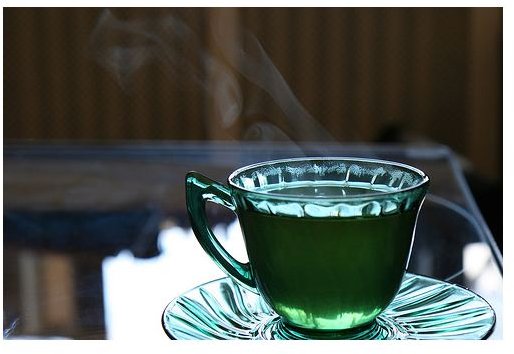Drinking Herbal Tea for Insomnia: Get a Good Nights Sleep with Herbs
Herbs for Troubled Sleep
As many as two-thirds of American adults regularly have trouble sleeping. A lack of sleep leads to irritability, tiredness and poor immune response. Many people opt for commercial sleeping pills, which disrupt natural sleep patterns, often come with side effects and in many cases are not as effective when taken several days in a row.
Herbs offer an alternative, natural solution for insomnia. They ease tension, relax the nervous system and make it possible to fall asleep, even after a stressful day. Unlike sleeping pills, they do not have negative side effects and are safe for use. While they should not be taken before operating heavy machinery or in conjunction with alcohol or any type of tranquilizer, on their own they are harmless, providing gentle relaxation. If pregnant, taking medications or if you have a medical condition, talk to your doctor before using herbs.
Tea Recipes for Better Sleep
Try any of the following recipes for herbal tea for insomnia.
Passion Flower and Valerian Tea
- 1 teaspoon passion flower
- 1 teaspoon valerian
- 1 cup of boiling water
Infuse the herbs in the water for ten minutes, covered. Drink one to two cups within an hour of going to sleep. Passion flower helps to transition to restful sleep. It also is an anti-spasmodic, making it helpful for soothing mild pain. Passion flower is more effective when taken with valerian, another nervine and anti-spasmodic herb.
Lime Blossom and Red Clover
- 1 teaspoon dried lime blossom flowers
- 1 teaspoon red clover
- 1 cup of boiling water
Brew in the same method as the passion flower and valerian infusion. This herbal tea for insomnia will have a more gentle effect, calming and relaxing the nerves. Drink a cup before bed time.
Skullcap, Catnip and Peppermint
- 1 teaspoon skullcap
- 1 teaspoon catnip
- 1 teaspoon peppermint
- 1 cup of boiling water
Again, steep the herbs for ten minutes, covered, and drink before bedtime. Skullcap is a natural source of melatonin. It eases tension while also renewing the central nervous system. Catnip has a gentle sedative effect on the nerves. Peppermint is not a sedative herb but it is a nervine, easing anxiety and tension. It also adds a nice aroma and taste to this herbal tea.
Try these herbal tea recipes to help deal with insomnia. It is also helpful to avoid caffeine and other stimulants except for in the morning, at least while having sleep problems. Eat light before bed, try a banana, warm milk and honey or wheat bread and butter if hungry late at night. You can also try relaxation techniques such as deep breathing, meditation or yoga before bed.
References
Gardner, Joy. “The New Healing Yourself: Natural Remedies for Adults and Children.” (The Crossing Press, 1989).
Page, Linda. “Healthy Healing: A Guide to Self-Healing for Everyone, 11th Edition” (Traditional Wisdom, 2003).
Hoffmann, David. “The Complete Illustrated Holistic Herbal: A Safe and Practical Guide to Making and Using Herbal Remedies.” (Element Books, 1996).
photo by Marco Arment/flickr
Disclaimer
Please read this disclaimer regarding the information contained within this article.
